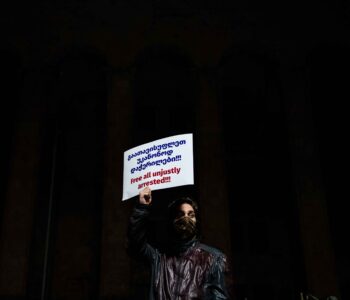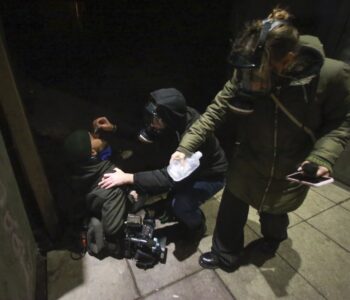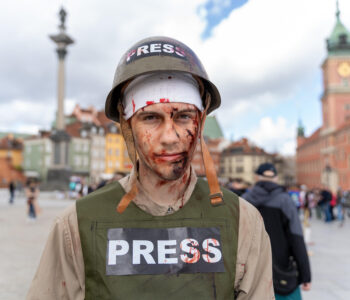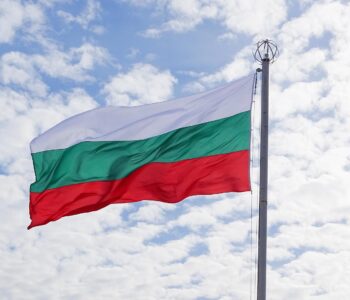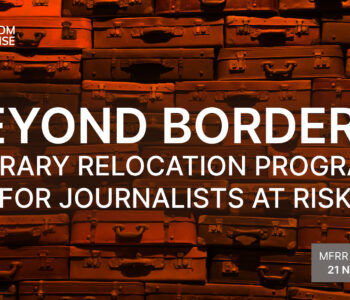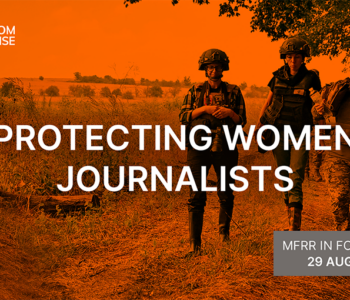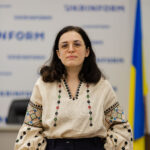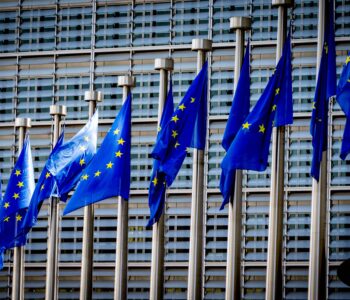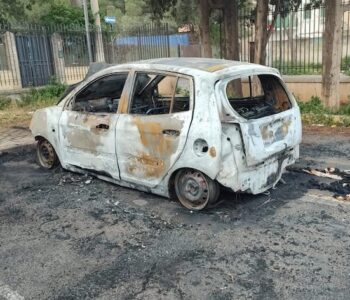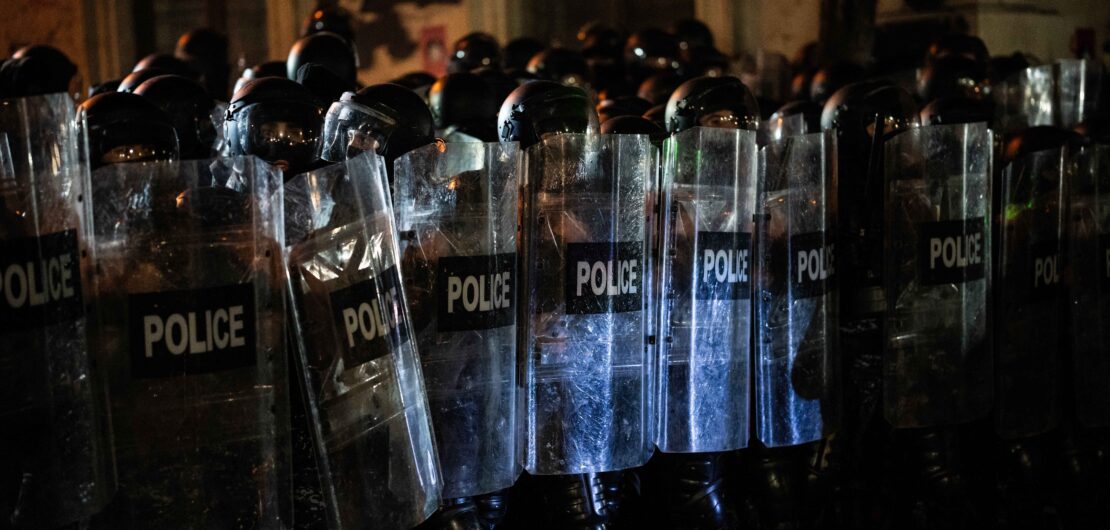 Library
Library
How journalists became targets of police violence
How journalists became targets of police violence
During the ongoing protests against the Georgian Dream government’s decision to halt EU negotiations, over 90 incidents were reported in which journalists covering the rallies faced assault and obstruction of their professional duties by law enforcement officers.
In several instances, dozens of journalists and cameramen were exposed to tear gas and pepper spray deployed by riot police. Some journalists were severely beaten, either by police officers themselves or by masked individuals, with the police standing by and taking no action.
Despite ongoing investigations into these incidents, no arrests have been made, leading many journalists to believe that the violence is being encouraged or allowed by the state.
Article by Mariam Bogveradze
23 December 2024
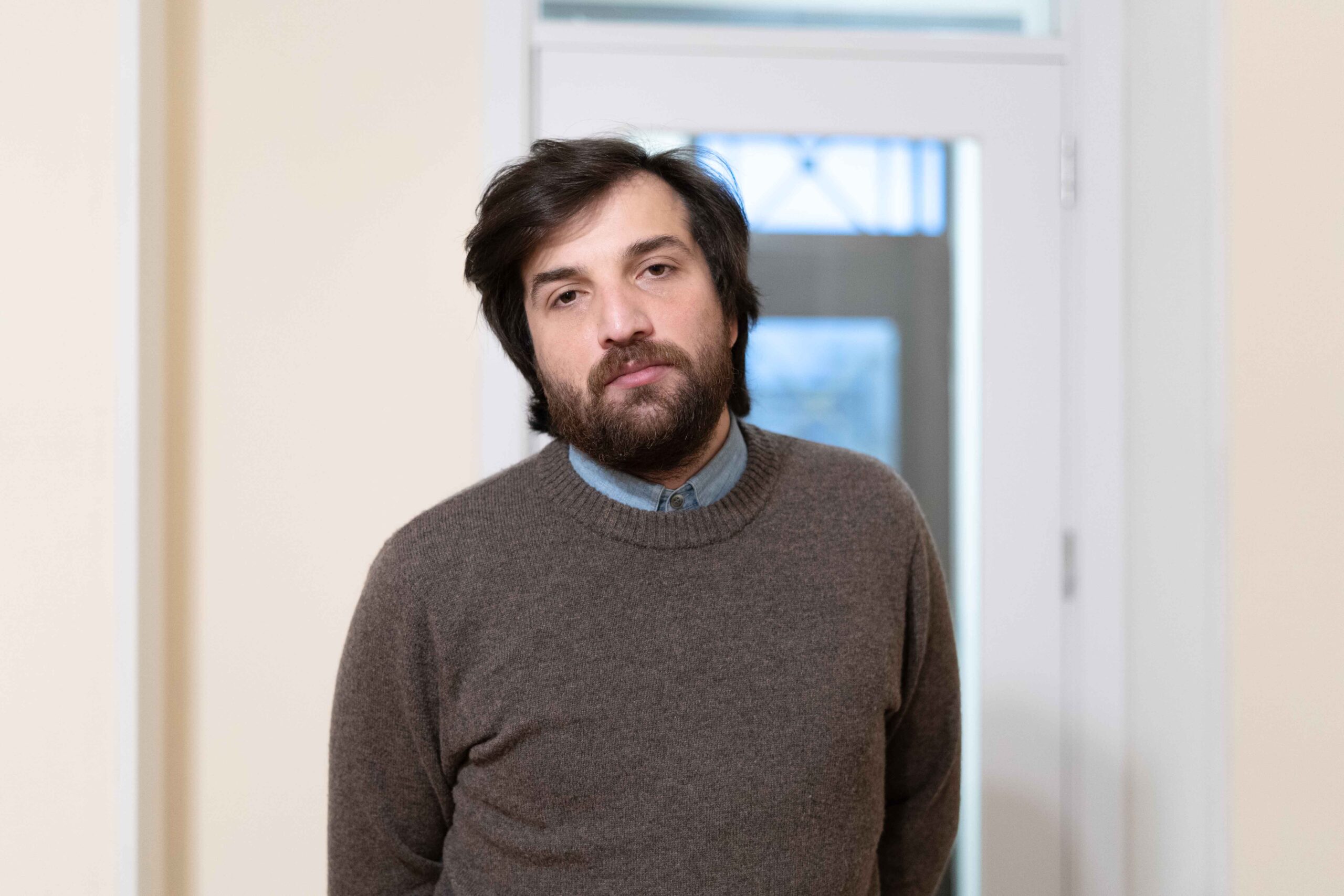
Aka Zarkua, editor at the online outlet Real Politika, is one of the journalists who was assaulted by the police while live-reporting from the rally on the night of November 30. Zarkua recalls that masked officers approached him and ordered him to leave the area using degrading language:
“I asked them if I violated anything. After that, several officers rushed at me and started beating. The only phrase I repeated was that I am a journalist, which provoked even more aggression from them. I heard phrases like, ‘we are beating you because you are a journalist’” – he says.
Zarkua recalls that while the police were beating him, someone—likely their commander—approached and attempted to shove the press card he was wearing into his mouth.
The day before, another Georgian news outlet, Netgazeti, reported that journalist Givi Avaliani was injured while covering the protests. Avaliani was working on the street next to the Parliament building, where the rally was taking place.
He recalls that around 1:30 AM, special forces had already been mobilized, and masked officers had formed a cordon on Chichinadze Street, with protesters standing just a meter away. Avaliani describes the atmosphere as tense, with the situation escalating periodically.
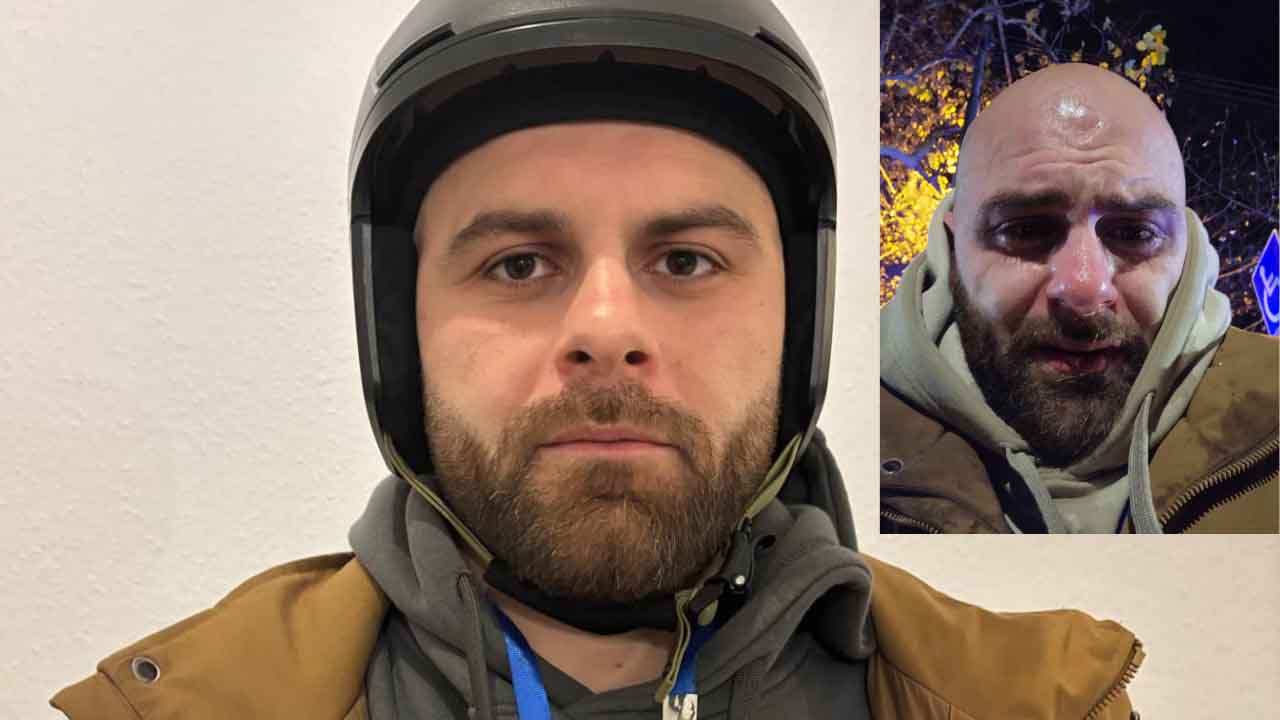
“The aggression seemed to stem from the fact that the officers were filming the protesters with their phones and, at times, verbally insulting them,” he says. “In one instance, the police attempted to arrest a peaceful protester standing nearby. As they tried to drag him away, other protesters intervened, pulling him back in an effort to prevent the arrest. This reaction was based on past experiences, where people were often beaten first during the arrest and then again in the police car.”
Avaliani was positioned in the front row, filming the excessive force and the police’s verbal abuse when suddenly, one of the masked officers in the back row reached forward and sprayed pepper spray at him and several others. “I was clearly marked as a journalist, wearing a helmet with the word ‘PRESS’ on both sides and a press badge,” he recalls.
In the days leading up to and following this incident, Avaliani noticed that the special forces, particularly the riot police unit, were unusually aggressive toward journalists covering the events at the epicenter. He believes this was a coordinated tactic, with the impression that their superiors had instructed them to physically intimidate the press to prevent footage that might expose the violence of the system.
“Given the circumstances, I can’t help but feel that the pepper spray incident was intentional,” he says.

Along with physical assaults and the use of special equipment against journalists, some press representatives were arrested while performing their professional duties. Giorgi Chagelishvili of Mautskebeli was one of them.
Chagelishvili recalls that on the morning of December 2, after police special forces raided the demonstration, protesters began fleeing toward Rustaveli Metro Station in a visible state of panic. Suddenly, riot police charged in from a side street, escalating the chaos.
“A number of people rushed into the Rustaveli Metro station, jumping over the turnstiles and sprinting down the escalators. I followed them into the subway but decided not to go down. Instead, I stopped and turned on my phone to record the scene. I moved to the corner, trying to stay out of the way, when they grabbed me and shoved me to the ground. I quickly hid my phone in my pocket and covered my head as several officers ran over me. I lay on the ground for a few seconds before they pulled me up and dragged me outside,” he recalls.
As they dragged him away, Chagelishvili explained he was a journalist, but the officers dismissed his claim, replying, “Everyone is saying that.”
“They confiscated my phone, threw me into a police van, and took me to the station,” he says. “Once there, they falsely accused me of swearing at them. I refused to sign any statement admitting to this. They pressured me, saying it would be ‘better for me’ if I signed, but threatened that if I didn’t, I would be detained longer. The entire ordeal lasted about an hour and a half. I requested a lawyer, but they told me I wasn’t entitled to one.”
According to Chagelishvili, during the search at the station, his press card was discovered, yet he was still detained.
“In court, the officers changed their story,” he says. “They no longer claimed I had cursed at them but instead accused me of resisting arrest. One officer even told the court, ‘When you hear the siren telling you to disperse, it doesn’t matter if you’re a journalist or not, you should leave.’ As a result, I was fined.”
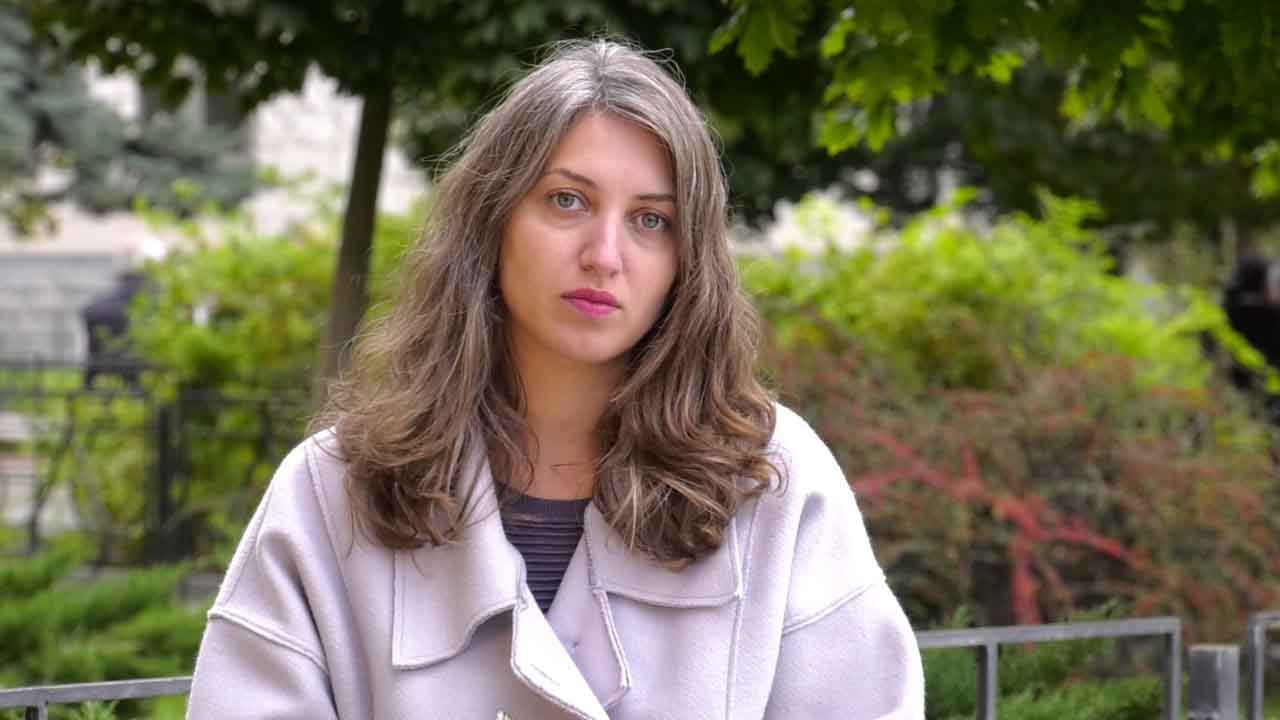
Several journalists have reported instances of their equipment being stolen or damaged by police forces during the protests. Nino Ramishvili, a reporter for Studia Monitori, an investigative outlet, is one of them. She states that a police officer grabbed her phone while she was covering the rally on the night of December 3.
By 2 AM, Ramishvili was at the rally with her colleagues, documenting the unfolding events. At that point, the demonstration had already been raided, tear gas had been deployed, and many protesters had fled from Rustaveli Street to nearby Besik Street. Knowing that special forces were stationed just around the corner, Ramishvili followed them. As the protesters reached Besik Street, the situation quickly escalated. Special forces surged out from a nearby building and began arresting protesters, using force to subdue them.
Ramishvili recalls that the situation intensified when the officers emerged unexpectedly from a building, unnoticed by the protesters. “The distance between the police and the demonstrators was minimal,” she says. “While some protesters managed to escape, one was caught and beaten by the police.”
“I started filming the special forces as they beat the detained protesters. As I took a photo, one of the officers charged at me, grabbed my phone, and began to confiscate it. At the time, I was clearly marked as press: I had a helmet with the word ‘PRESS’ on it and a press card. I immediately asked why my phone was being taken, explaining that I was a journalist. Initially, the officer ordered me to delete the footage. Before I managed to answer he handed my phone to another officer, telling him not to return it to me, as if I might chase him to get it back,” she explains.
Ramishvili repeated that she was a journalist and showed her identification, approaching other officers to make the same point. However, the police were dismissive, responding rudely and indifferently.
“My status as a journalist seemed irrelevant to them,” she says. “They made sexist comments, telling me to ‘go home and take care of my family.’ Their attitude was openly cynical. The verbal abuse wasn’t limited to me. A neighbor who had come outside attempted to intervene, asking the officers to stop using vulgar language against the protesters. An elderly woman was also subjected to deeply insulting and derogatory remarks.”
After returning to the office, Nino contacted the press office of the Ministry of Internal Affairs to report the incident. Later, she checked the location of her phone using her laptop and found it registered just a few meters away from where the special forces had been stationed. The next morning, the location still showed her phone inside the Ministry of Internal Affairs building at 9 Gulua Street, where it remains to this day.
“The following day, I attended a briefing held by Deputy Minister of Internal Affairs, Aleksandre Darakhvelidze. When I raised the issue with him, he assured me that they were aware of the situation and were actively searching for my phone. When I told him I had checked the phone’s location and it was still inside the Ministry building, he had no response. His only reaction was to show clear displeasure with what I had said,” Ramishvili adds.
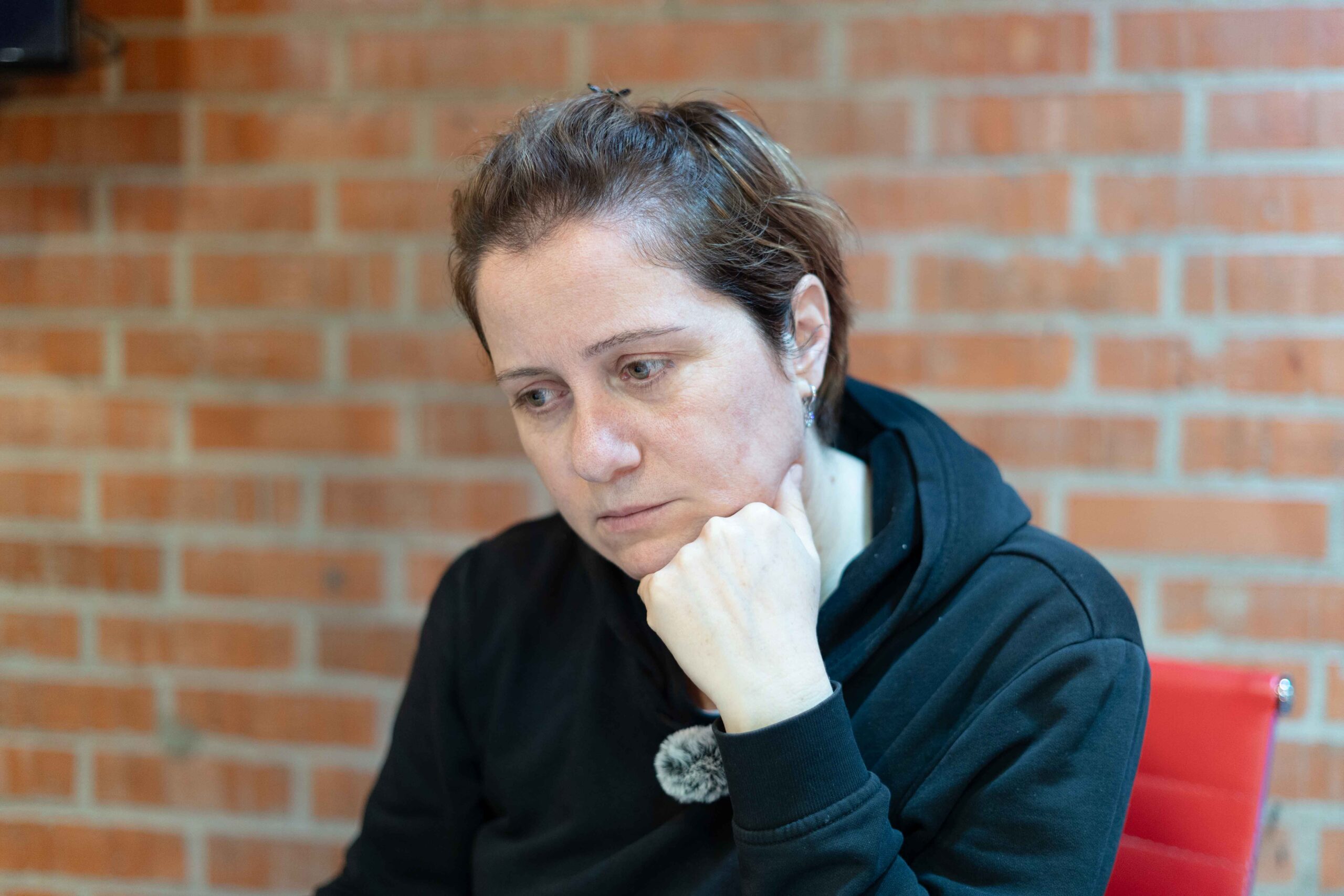
One of the most severe instances depicting journalist assaults occurred on December 7th, when unidentified masked individuals attacked the Tv Pirveli team, including journalist Maka Chikhladze and her cameraman Giorgi Shetsiruli.
During a live broadcast, dozens of masked individuals attacked Maka Chikladze from behind and pulled her to the ground, before severely beating cameraman Giorgi Shetsiruli, leaving both of them with concussions. Chikhladze adds that her cameraman required numerous stitches on his head and that his hand was severely wounded, preventing him from grabbing a camera for a long time. After beating the journalists, the assailants took their equipment.
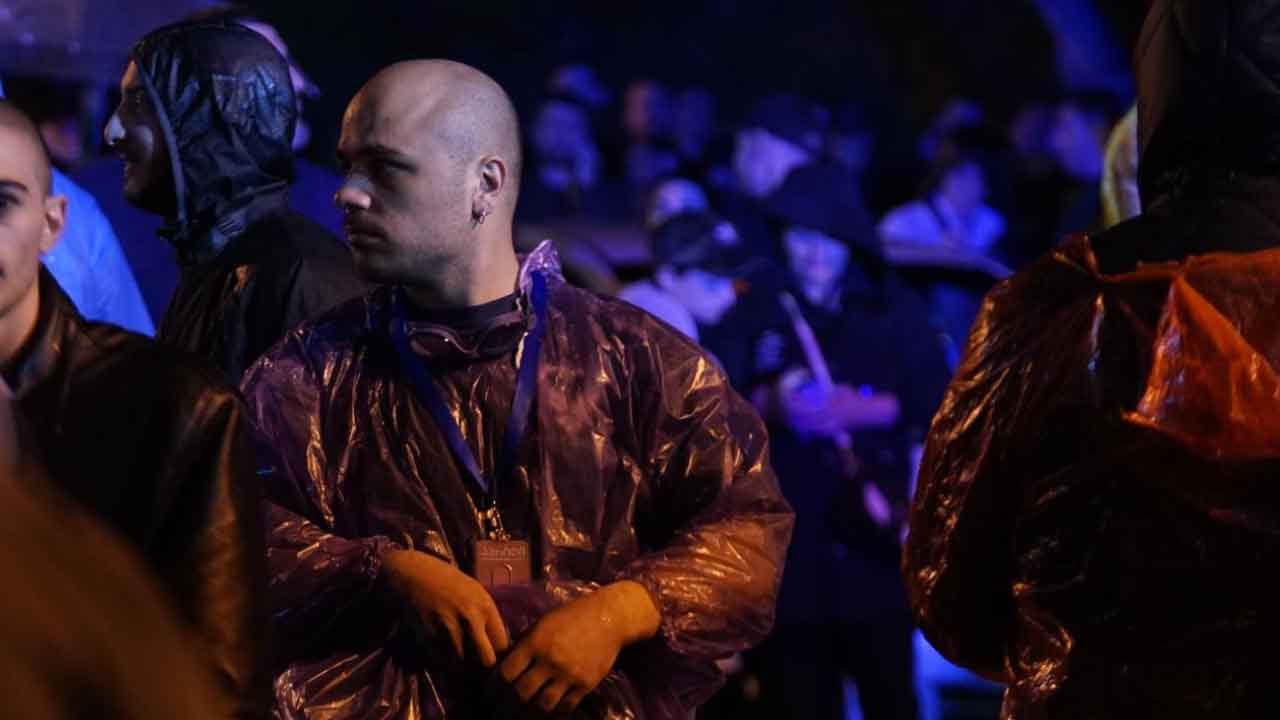
On the morning of December 2, after the police had already raided the demonstration in front of Parliament, some citizens decided to continue the protest at another location. A section of the road near Vake Park, about 4.5 kilometers from the Parliament building, was blocked. Giorgi Baskhajuri, a reporter for Media Aprili, was covering the scene.
He recalls that, at that moment, the police appeared lightly armed, and the riot police had already left. The officers wore masks to conceal their identities as they began chasing the protesters.
“I was walking past the police, taking photos, when I noticed some protesters seeking shelter in nearby buildings and alleys to avoid arrest. I saw a group of demonstrators enter one of the alleys, and the police quickly followed. Given the tense atmosphere and the events of the previous days—when protesters had been brutally beaten during arrests—I realized that no cameras would be allowed in this area, and there was a real risk of physical abuse. That’s when I decided to document the situation,” he says.
By the time Baskhajuri arrived, one detainee was already being escorted out, and he began filming. “I was clearly marked as press, wearing a helmet and a vest labeled ‘Press,’ with my press card visible,” he says. He moved slightly aside to avoid obstructing the police and asked one of the officers on what grounds they were detaining the individual.
“At that moment, an officer who wasn’t in uniform approached me. He shoved me against the wall, attempting to prevent me from taking photos or seizing my phone. He physically assaulted me, pushing me harder against the wall. Realizing the situation was escalating, I tried to retreat. As he pushed me further into the wall, I managed to escape and ran into the yard behind a nearby building. After a short time, I resumed filming.”
Baskhajuri recalls that the officer’s face was only partially covered, allowing him to identify him. However, he fears that by the time the investigation proceeds, he won’t be able to recognize the officer.
“I’ve been through this process before,” Giorgi explains. “In the spring, during a rally against the Foreign Influence law, I was chased and physically assaulted by the police, who broke my nose behind Parliament. At that time, I was also wearing all the identifying marks of the press. There should have been cameras in these areas. I’ve filed complaints for the previous incident, and despite being designated as a victim in the case, I’ve had no communication with the authorities since April.”
Baskhajuri notes that when he wrote his complaint, he pointed out that he could identify the most aggressive officers, but nothing has been done.
“Given the lack of action in the past, I have no hope that this current investigation will lead to anything meaningful. I’m left waiting for the day when this government is replaced, and my violated rights are finally restored,” he says.
Although the Special Investigative Service, the body responsible for investigating crimes committed against journalists, has initiated investigations into each case, none of them have led to any meaningful results. The local NGO Media Ombudsman, which has been handling the cases of over 20 journalists since the protests erupted on November 28, states that there are strong indications these assaults on the press are not only intentional but may be actively supported by the state.
Media Ombudsman’s lawyer, Jano Chkadua, underscores the state’s clear responsibility in allowing police officers to wear masks. He points out that, unlike special forces who are equipped with helmets and shields for tactical purposes, the only function of these masks in the hands of regular police officers is to conceal their identities while assaulting journalists.
“It is precisely these masks, along with the fact that no law enforcement officers have been held accountable for crimes against media representatives and other citizens, that encourages such violent acts. This impunity gives them the sense that they can act without fear of consequences,” he states.
According to the lawyer, this is the first time they have encountered cases of robbery by the police. Many journalists have reported having their mobile phones, cameras, tripods, and other equipment taken. To this day, the whereabouts of this equipment remain unknown.
“It turns out that law enforcement bodies, which are meant to protect journalists’ rights and should never interfere with their work, instead engaged in acts of interference, violence, persecution, and robbery targeting journalists. This is especially serious because, in the past, journalists were considered ‘untouchable’ in such situations. Now, however, they have become the targets of the police, with active violence being committed against them,” he says.

